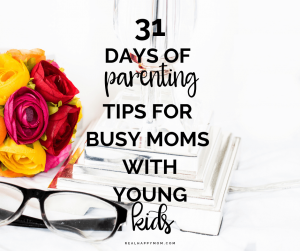Your toddler’s “big feelings” can be overwhelming at times. And they can be overwhelming for your toddler, too.
Helping your toddler handle their big feelings can go a long way toward your comfort level and their’s.
Toddlers have been described as “babies on wheels,” which refers both to their age and their mobility.
In many ways, they really are still babies. So it’s important to remember that as you help them deal with their emotions.
Even though they are not small babies, toddlers do not have the vocabulary or life experience to put emotions into perspective.
Here are some ideas and suggestions for helping them deal with their feelings in a healthy way.
Pin this for later!
Give it a name
Like I said before, toddlers have limited vocabulary. Some toddlers do not even talk at all yet.
This can be a source of great frustration for them. They just don’t have a way to say how they are feeling.
This is where teaching sign language can help. Giving the emotions a name is key.
Ask your toddler what she is experiencing. You could say, “You are feeling angry because I would not give you that toy?”
Now the toddler has a word for the feeling, which helps “tame” the emotion somewhat.

Constructive Venting
Now that you’ve named the feeling, try showing your toddler constructive ways to get those feelings out.
Have a pad of paper and crayons handy, or a chalkboard, or whatever works for you. This is just so you get the point across that an angry/sad/scared feeling can be expressed in drawing or painting.
Toddlers can be taught to do an “angry dance” to express how they feel.
Punching pillows, playing drums, or other creative but safe methods can be used to channel the feelings.
Just gently direct your toddler to one of those activities when you see the big feelings coming on, and he will begin to learn how to go for these constructive activities himself.

Validate
It’s important to let your toddler know that feelings are not “wrong” and punishable; behavior is.
Let your toddler know that he or she is allowed to feel an emotion, but that she is not allowed to hit her brother.
You could try telling her, “You are allowed to feel angry. Everyone does sometimes, and when such-and-such happened, it made you angry. But you are not allowed to hit.
When you feel angry, do this,” then redirect her to something more constructive to express her feelings.

Schedules and Routines
For some toddlers, having a routine can go a long way toward helping them feel secure and therefore less at the mercy of their feelings.
And when a toddler feels secure, he may have fewer emotional “episodes.”
Some parents have had great success in establishing a routine, even using a timer for activities, so that things are predictable.

This post is a part of the series 31 Days of Parenting Tips for Busy Moms With Young Kids. Each day throughout the series I am discussing a different topic regarding parenting young kids. I’d love for you to follow along and share this series with moms who may need some support or just to hear that they aren’t alone in their journey of raising young kids.
Find all of the posts in one place on the series homepage: 31 Days of Parenting Tips for Busy Moms With Young Kids


[…] best thing that you can do for your child is to allow them to feel these big emotions. Also, validate your child’s feeling instead of brushing them […]